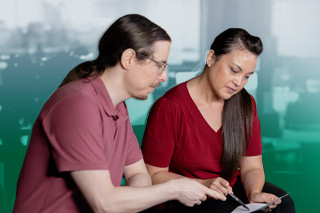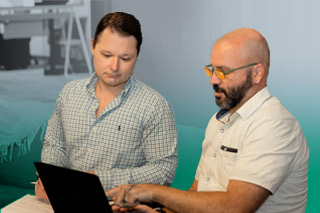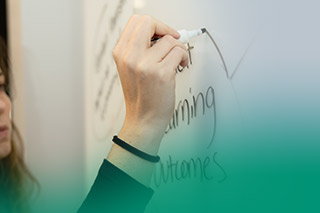Design Process
Overview
Digital Learning’s approach to design is built on collaboration and intentionality.
Their outcome-driven development process pairs USF faculty with skilled Learning Designers,
bringing everyone’s collective expertise to the table. Personalized support is tailored
to each course’s unique needs, drawing on research and proven best practices in online
learning. This highly collaborative effort, informed by design thinking and collaborative
problem solving, fosters innovative solutions that lead to engaged learning and lasting
impact for students.
Intentional Collaboration

At the heart of course design process is a collaborative partnership where faculty and designers leverage their expertise. Through regular brainstorming and problem solving, they work together to understand learner needs, align on goals, and tackle instructional challenges to meet outcomes. This semester-long collaboration fosters innovative solutions and a shared commitment to creating student-centered online courses.
PERSONALIZED SUPPORT

Faculty work closely with dedicated Learning Designers who guide them through each phase of course development, providing customized planning tools, just-in-time resources, and tailored recommendations to increase interaction and engage learners. This hands-on support includes developing multimedia-based content and building the course from start to finish, ensuring that each course meets the unique needs of faculty and students alike.
PEDAGOGY AND RESEARCH

The design process is grounded in research and established quality standards and informed
by proven instructional design models and theories. Each course reflects best practices
in online learning, drawing on evidence-based strategies to ensure effective and engaging
learning experiences that meet rigorous academic standards.
ContinUous Refinement

To keep pace with evolving educational needs, Digital Learning Design leverages ongoing faculty and student feedback, refining their process based on new technology, emerging research, statewide goals, and the needs of modern learners. This commitment to continuous evaluation and improvement ensures that courses remain relevant, innovative, and impactful.
Faculty Insight

Dr. David Kilmnick, College of Behavioral and Community Sciences